The Center for Global Safe WASH is always interested in the career success of our WASH graduate students at the Rollins School of Public Health.
In this section, we highlight the career activities and accomplishments of a few of our many students who either concentrated on WASH or earned a Graduate Certificate in WASH over the past several years. So…where are they now??
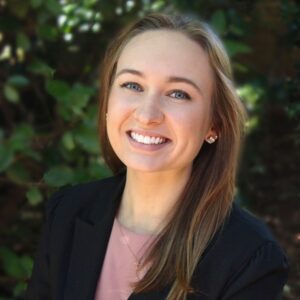
Lilly O’Brien, MPH
RSPH Department and Year: Global Environmental Health, 2023
CGSW Mentor/Advisor: Matthew Freeman
MPH Thesis: Associations of drinking water access, household water and food security, and mental well-being of prenatal women in low-income, urban neighborhoods of Beira, Mozambique
Where is she now? Public Health Program Associate, GDEH, Rollins School of Public Health, Emory University
Lilly O’Brien, MPH, is a Program Associate in the Gangarosa Department of Environmental Health, collaborating with Dr. Matthew Freeman, Dr. Marlene Wolfe, and Dr. Bethany Caruso. Her current research projects center on WASH, with a particular focus on its intersection with gender and the application of implementation science to enhance program impact within NGOs. This has included working with CARE International and World Vision to carry out process evaluations and document program adaptations. Additionally, she managed systematic reviews on various handwashing topics for the WHO’s Guideline Development and is managing a research study evaluating the efficacy of handwashing methods. During her studies at Rollins School of Public Health, Lilly interned with Dr. Freeman on a research study, titled PAASIM, examining the impact of improved water supply on the gut microbiome of infants in Mozambique. Her APE/GFE was completed through this project and culminated in the publication of her master’s thesis, which investigated water insecurity, food insecurity, and mental well-being among pregnant women. Before earning her MPH at Rollins, Lilly obtained a Bachelor of Science in Biochemistry with a Global Health Certificate from the University of Wisconsin-Madison in 2020.
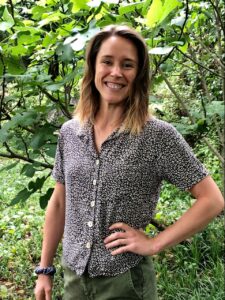
Jamie VanTassell, MPH
RSPH Department and Year: Global Environmental Health, 2021
CGSW Mentor and Advisor: Christine Moe
MPH Thesis : A Mixed-Methods Catchment Area Modelling Approach Using Free DEMs to Inform Environmental Surveillance: A Double Case Study Analysis
Where is she now? Head of Programmes – Community Health, SEED Madagascar
Jamie is currently living and working in Fort Dauphin, Madagascar for a charity called SEED Madagascar. Jamie joined the SEED team in January 2024 as Senior Programme Officer and is now the Head of Programmes for the Community Health department. Prior to that, Jamie was a Public Health Fellow at the Centers for Disease Control and Prevention in Atlanta, USA, where she worked for the Humanitarian Health Team within the Emergency Response and Recovery Branch, supporting international project development and emergency response. Before this role, Jamie was a Project Coordinator at Emory University for a COVID-19 Wastewater Surveillance project, demonstrating its use as an early warning tool to monitor SARS-CoV-2 circulation in a population. Jamie’s thesis project focused on how to use free, open-access information to inform sampling activities for environmental surveillance of pathogens in settings with limited resources and informal sewerage systems. Jamie received the Gangarosa Department of Environmental Health’s Award for Excellence in Research as well as the Charles C. Shepard Award for her thesis paper. Before attending the Rollins School of Public Health, Jamie worked in the private sector for five years as an Environmental Specialist/Engineer after receiving her Bachelor’s of Science in Environmental Engineering from Georgia Tech in 2014. Her current research and professional interests include WASH behavioural science, wastewater surveillance, disaster management and resilience, and Monitoring, Evaluation, and Learning (MEAL).
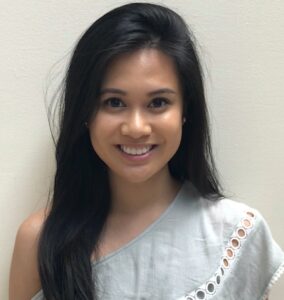
Bianca Corpuz, MPH
RSPH Department and Year: Global Epidemiology, 2020
CGSW Mentor/Advisor: Pengbo Liu and Christine Moe
MPH Thesis : Identifying Enteric Pathogens and Assessing Their Health Risks in Urban Environments of Dhaka, Bangladesh
Where is she now? PhD candidate, Johns Hopkins University
Bianca Corpuz, MPH is a doctoral student at the Johns Hopkins University housed within the Department of Earth and Planetary Sciences. Her research focuses on urban environmental health challenges related to climate change and WASH in the city of Baltimore. Bianca’s work prioritizes university-city government collaboration to produce research that benefits local communities and addresses environmental justice. Previously, she has completed work on evaluating the efficacy of WASH interventions in rural Cambodia and assessing risks of infection from open drain and canal water exposure among a wide range of enteric pathogens in urban Bangladesh. Bianca received her MPH in Global Epidemiology and WASH certificate from the Rollins School of Public Health at Emory University and BS in Biological Sciences from the University of Maryland, Baltimore County. During her time at Rollins, Bianca worked with the Georgia Department of Public Health, Centers for Disease Control and Prevention, WaterAid Cambodia, and Center for Global Safe Water, Sanitation, and Hygiene (CGSW) at Emory University. Her research interests include climate change, atmospheric science, WASH, and urban health.
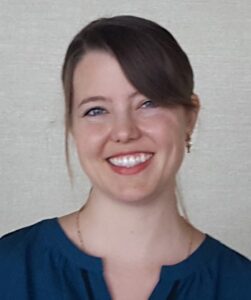
Breanna Wodnik, MPH
RSPH Department and Year: Global Health, 2018
CGSW Mentor/Advisor: Matthew Freeman and Bethany Caruso, Thesis Advisors
MPH Thesis: Development and Application of Novel Caregiver Hygiene Behavior Measures Relating to Food Preparation, Handwashing, and Play Environments in Rural Kenya
Where is she now? PhD Candidate at the University of Toronto’s Institute of Health Policy, Management and Evaluation.
As a current PhD Candidate, her research focuses on the interplay between organizational learning and organizational compassion. Prior to that, she researched community and stakeholder engagement, organizational learning, and fair partnerships as a means of improving the performance of global health programs, working with Dr. Jim Lavery on the Human Engagement Learning Platform (HELP) for Global Health team. She led a project working on improving mass drug administration campaign effectiveness for both lymphatic filariasis and onchocerciasis through fair research partnership. Though she has moved more into the neglected tropical disease field since graduation, she continues to stay close with her WASH community at Rollins, and collaborated with Dr. Karen Levy’s team on a project investigating interactions between the gut microbiome conditions and enteric infections in coastal Ecuador in 2019.
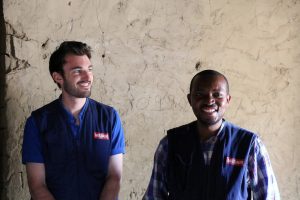
Conner Wingerter, MPH
RSPH Department and Year: Global Health, 2017
CGSW Mentor/Advisor: Joanne McGriff
MPH Thesis: The State of Sanitation in Humanitarian Emergencies: A Systematic Review of Global WASH Cluster Needs Assessments
Where is he now? WASH and Food Security Project Manager, Medair, Afghanistan
Conner currently manages Medair WASH projects in Afghanistan,. Prior to that he managed Water, Sanitation, and Hygiene (WASH) projects in conflict-affected areas of DR Congo’s Nord Kivu Province. The projects primarily intervene in health facilities to reduce nosocomial infections through the construction, rehabilitation and maintenance of water and sanitation infrastructure at health facilities, medical waste management, and hygiene training and supervision for nurses and hygienists. With the recent and ongoing Ebola outbreak in Nord Kivu, the scope of Conner’s work with Medair has grown to include emergency WASH projects for the prevention of Ebola in communities and schools, as well as supporting health facilities to safely isolate suspected Ebola cases and disinfect isolation areas following contact with a suspected Ebola case.
(photo copyright: © Medair / Pete Harrison)
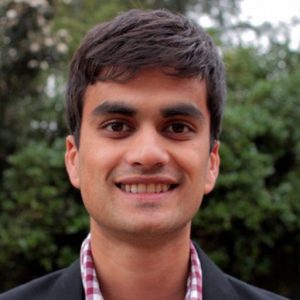
Aniruddha Deshpande, MPH
RSPH Department and Year: Global Epidemiology, 2016
CGSW Mentor/Advisor: Karen Levy
MPH Thesis: Heavy Rainfall Events and Diarrheal Diseases: The Role of Urban/Rural Geography
Where is he now?
Aniruddha (Ani) Deshpande, MPH, is a research scientist on the Local Burden of Disease project at the Institute for Health Metrics and Evaluation at the University of Washington. His research focuses on mapping access to water, sanitation, and hygiene (WASH) using model-based geostatistics. Previously he has completed work on emerging infectious diseases with pandemic potential and understanding the impact of rainfall on diarrheal diseases in urban versus rural settings. Aniruddha received his MPH in Global Epidemiology at the Rollins School of Public Health at Emory University and a BS in Biology and Philosophy at Emory University. He has previously worked at the Global Immunization Division of the Centers for Disease Control and Prevention (CDC) and the Center for Global Safe Water, Sanitation, and Hygiene (CGSW) at Emory University. His research interests include WASH, climate change, infectious disease modeling, epidemiological methods, spatial statistics, and impact evaluation.
“The WASH certificate program introduced me to the fascinating interactions between the environment and infectious diseases. Through classes with Dr. Christine Moe and Dr. Karen Levy, I was able to solidify my knowledge in waterborne disease epidemiology but also expand my skills to tackle a wide variety of research questions. The certificate program encouraged me to explore classes in quantitative methods beyond the core MPH requirement which allowed me to gain experience in spatial analysis and survey design — skills critical for my current role. Due to the strong WASH focused research network present at Emory, I have developed subject-matter expertise and a strong personal research interest in water and health.”
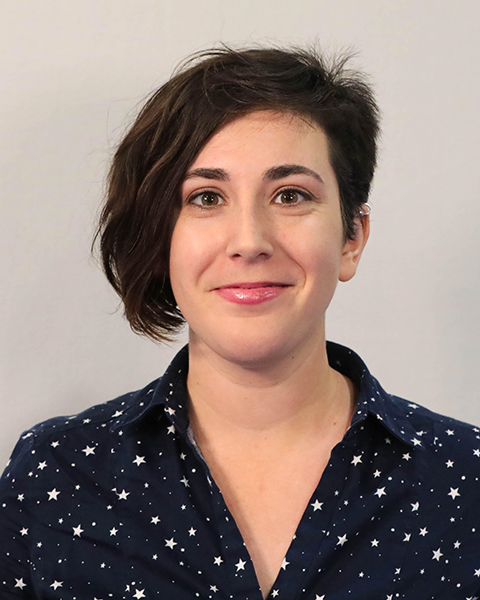
Em Maier, BS, B.Phil, MPH
RSPH Department and Year: Global Epidemiology, 2016
CGSW Mentor/Advisor: Julie Clennon
MPH Thesis: HIV Community-Based Organizations’ Readiness and Self-Perceptions Regarding Their Role in PrEP Implementation
Where is she now? Epidemiologist at Macomb County Health Department
I work as the sole epidemiologist for the county just northeast of Detroit, as part of a Health Planning team. As the only data analyst and epidemiologist here, I’m responsible for health surveillance, data management and analysis. This ranges from outbreak investigations to creating and leading a multi-pronged opiate strategy, which encompasses building a surveillance system, community engagement, and prescriber education. As part of the Health Planning team, I work on cross-cutting projects for the department: developing a performance management dashboard, overseeing research projects and policies, coordinating state and national accreditation, and providing monitoring and evaluation assistance to grants. I also work on spatial analysis for the department, both for longitudinal reports, as well as creating interactive storymaps or data visualizations for specific programs or events. During my time here, I also contribute to two local public health organizations: the Southeastern Michigan Epidemiology Committee meetings, and serving as the President for the Michigan Public Health Association Epidemiology Section, which provides mentorship, professional development, and an annual scientific conference.
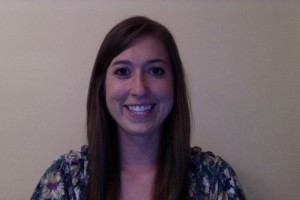
Jacqueline Hurd, MPH
RSPH department and year: Global Health, 2014
CGSW Mentor/Advisor: Monique Hennink and Christine Moe, Thesis Advisors
WASH Thesis: “Pervasive Exposure to Fecal Contamination in Low-Income Neighborhoods in Accra, Ghana”
Where is she now? – Family Nurse Practitioner
The WASH classes and CGSW faculty gave me the opportunity to discover my WASH expertise and interests. Furthermore, the Graduate Certificate in WASH prepared me to work at the Waterborne Disease Prevention Branch with the essential tools I need to carry out Shigella surveillance.
Jacqueline has an undergraduate degree concentrated in four areas—immunology and infectious diseases, toxicology, international studies, and Spanish—plus a master’s degree in public health. But it wasn’t until she was working in a remote village in Honduras as part of her role as a health scientist at the Centers for Disease Control and Prevention that she discovered that nursing should be part of her plan.
“As we traveled from house to house, people kept looking up at me and saying, ‘doctor, doctor, please help me,’ ” Hurd recalls. “We went to one house where all of the children were sick, and the mom was sick too. I wanted to help them, but I didn’t have the clinical knowledge to make the proper decisions. Right then and there, I knew that I needed a clinical degree to make a broader impact on public health.”
*
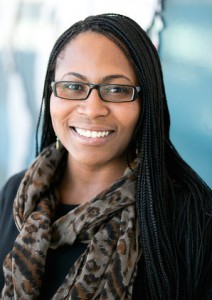
Ledor Igboh, MPH
RSPH department and year: Global Environmental Health, 2014
CGSW Mentor/Advisor: Christine Moe, Thesis Advisor
WASH Thesis: “Evaluation of the Sustainability and Impact on Water Quality of Decentralized Water Treatment Systems Installed by the General Electric (GE) Foundation in Six Government-run Hospitals in Ghana”
Where is she now? Epidemiologist, Influenza Division/ National Center for Immunization and Respiratory Diseases/ Center for Disease Control and Prevention.
Under the instruction and guidance of world-class professors like Dr. Christine Moe and other CGSW staff, I received exceptional training in WASH – related laboratory methods, recognizing and understanding of policies that shape the WASH landscape and the importance of using data for decision-making. In addition, my WASH training prepared me to be able to identify leading etiological agents and their biological properties affecting disease transmission. I have also been trained to understand how waterborne disease surveillance systems operate, how the data from these systems are used, and identify strategies and health infrastructures for the control of waterborne diseases. Getting the self-guided Graduate Certificate in WASH sharpened my keen interest in the research, technical and operational aspects of public health, particularly in the area of WASH interventions. My research experiences at Emory and CGSW has proven to be transferrable and applicable to my current work as an Epidemiologist working to build detection and response capacity for respiratory viruses and emerging diseases alongside other environmental health/public health professionals domestically and abroad.
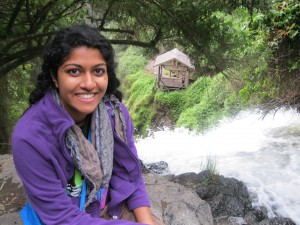
Gouthami G. Rao, PhD, MPH
RSPH department and year: Environmental Health, 2013
CGSW Mentor/Advisor: Karen Levy, PhD, Thesis Advisors
WASH Thesis: In northern coastal Ecuador many communities rely on untreated surface water as their primary source of drinking water. We undertook a study to explore how microscale river hydrodynamics affect microbial water quality (specifically investigating E. coli concentrations) at community water collection locations on three rivers with varying stream velocity and turbidity profiles
Where is she now? Post doctoral Fellow, University of North Carolina, Chapel Hill
Since I was interested in WASH as an undergraduate at Emory, having the opportunity to work with WASH-focused faculty at Rollins School of Public Health was a great career-building experience. On several occasions I’ve received advice and support from staff and faculty on the direction of my WASH career, and till this day I’ve never been driven astray. Sometimes mentors know what’s best for you even when you don’t fully realize it yourself. It’s a valuable perspective to have. Taking WASH courses and receiving WASH training also enhanced my interest in pursuing a PhD in Environmental Health or Epidemiology.
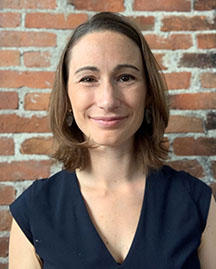
Katharine Robb, DrPH, MPH
RSPH department and year: Global Environmental Health, 2011
CGSW Mentor/Advisor: Karen Levy, Thesis Advisor
WASH Thesis: ““Influences of Household Storage on E. Coli Concentrations in Drinking Water in Northern Coastal Ecuador”
Where is she now? – Senior Research Associate, Bloomberg Harvard City Leadership Initiative
Katharine (Kate) Robb works on applied research and innovative approaches to solve urban environmental health challenges. She completed her doctorate of public health degree at the Harvard T.H. Chan School of Public Health in 2019. Currently, she leads studies focused on housing and health and how city governments can leverage their existing data and resources to be more effective, efficient, and equitable in responding to public health problems.
Prior to this role, Kate was the associate director of research projects at the Center for Global Safe Water, Sanitation, and Hygiene (WASH) at Emory University. There, she led multi-country research projects on sanitation-related exposures in urban slums and WASH conditions in healthcare facilities in low-resources settings. Kate has also worked for the Bill & Melinda Gates Foundation, CARE International, and AmeriCorps.
Her words: My experience studying WASH at Emory—through coursework, internships, and field experiences—exposed me to experts across disciplines applying their talents and knowledge toward evidence-based and sustainable WASH solutions. In my staff position at Emory, I was constantly using the skills and principles I learned throughout my MPH. I feel incredibly fortunate for the opportunities and mentors I had as a student and staff member at Emory. Though I’m not currently working in WASH, I’ve found the skills to be transferable to different settings and subject areas.
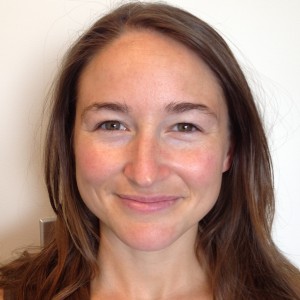
Bethany A. Caruso, PhD, MPH
RSPH department and year: Global Health, 2009 (MPH) Behavioral Sciences and Health Education, 2015 (PhD)
CGSW Mentor/Advisor: Juan Leon, Thesis Advisor
MPH Thesis: “Maternal behavior and experience, care access, and agency as determinants of child diarrhea in Bolivia”
PhD Dissertation: “Sanitation Insecurity:Definition, Measurement, and Associations with Women’s Mental Health in Rural Orissa, India” (Hannah Cooper, PhD Dissertation Advisor) Committee Members: Thomas Clasen, Craig Hadley, Kathryn Yount, Regine Haardoerfer)
Where is she now? Dr. Bethany Caruso was recently appointed Assistant Professor in the Hubert Department of Global Health. She received her BA from Wesleyan University, and completed her MPH in Global Health and PhD in Behavioral Sciences and Health Education at the Rollins School of Public Health (RSPH) at Emory University. From 2016-2019, Dr. Caruso received funding from the National Institutes of Public Health to complete a postdoc in the Environmental Health Department at RSPH, specifically as part of the Fellowship in Research and Science Teaching (FIRST) Program.
Dr. Caruso is a social and behavioral scientist with over a decade of water, sanitation, and hygiene (WASH) sectoral research experience in low and middle income settings. She employs mixed methods approaches to understand how compromised WASH conditions impact physical and mental health, behavior, education, and empowerment, with a specific focus on girls and women throughout their life course. Her work includes application of qualitative methods, measurement development, hierarchical modeling approaches, theory-based intervention design, and impact and process evaluation. Her work emphasizes translation to policy and practice through public scholarship and engagement with policy-makers. She has carried out fieldwork in Kenya, India, Bangladesh, and Bolivia, and has supported research in over a dozen additional countries.
Please see Dr. Caruso’s Google Scholar page for current publications.